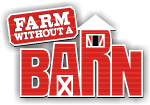When to Fertilize
 Fertilizers
Fertilizers
The word fertilizer frustrates me because I have been lead by advertisers in the garden industry to believe we need to fertilize our plants rather than "growing our soil". I have focused on my soil in my veggie garden over the last six years now and I consistently have not had a bad growing year. Of course I have made a few mistakes in other areas that have had some bad plant casualties e.g., pruning and over watering, but those were a learning process.
When it comes to fertilizer numbers, quantities and application rates/times, I feel that fertilizer companies make gardening more complicated for me. All this effort to get the most growth in the season makes me think my plants would then be similar to a person addicted to steroids and working out at a gym.
I have been looking for a balance in the way I fertilize my garden and I learned a lot from great organic style blogs and other social media platforms. Lasagna gardening, square foot gardening or container gardening when done as organically as possible all have a common connection and that is the soil you use. I had to make my own balanced soil that had all the nutrients and organic fertilizers in it to feed my plants for the whole season.
Here is some of the different type of compost I used to organically fertilize my veggies; well-composted leaf mulch, worm casting and my own SEA SOIL. My veggies are planted in 60% Sea Soil and 40% Coco coir and I never have a bad year and never have to fertilize. I try to grow the best plants for my family and that means they must be nutritious, healthy and also safe.
I'm not trying to grow the biggest tomato or bloom and I can barely follow directions, especially when it comes to fertilizer applications. In the past I innocently burned my lawn a few times and had to pull a few plants out from using a chemical fertilizer. In my experiences when I mix in a little too much well composted leaf compost, worm casting or my own SEA SOIL into my gardens my plants just seemed to not do as well as before (not as happy) but I did not have burnt plants or the worry there might be a chemical fertilizer building up in my soil. Using Omri Listed Original Sea Soil as my fertilizer is the best decision I have made.
Upcoming Events
There are no events to display.
SEA SOIL Articles
Growing Your Soil
Not the Landfill. All of our bags, pallets and pallet wrap can be recycled. Our plastic is made from no. 4 LDPE (Low-density polyethylene) plastic which can be recycled by returning clean, dry, empty plastic bags to recycling drop off centers or retailers and municipalities (curbside collection also) that provide designated plastic bag recycling. Wooden pallets can be reused or recycled at designated wood recycling areas with your municipality.
OMRI Tested
We believe that all soils should have a required minimum set of testing standards when it comes to growing. That is why we contacted O.M.R.I. years ago to start the process of approving SEA SOIL. We regularly test our SEA SOIL for heavy metals, ecoli and even fecal coliforms to make sure SEA SOIL is the best choice for gardeners and growers.



